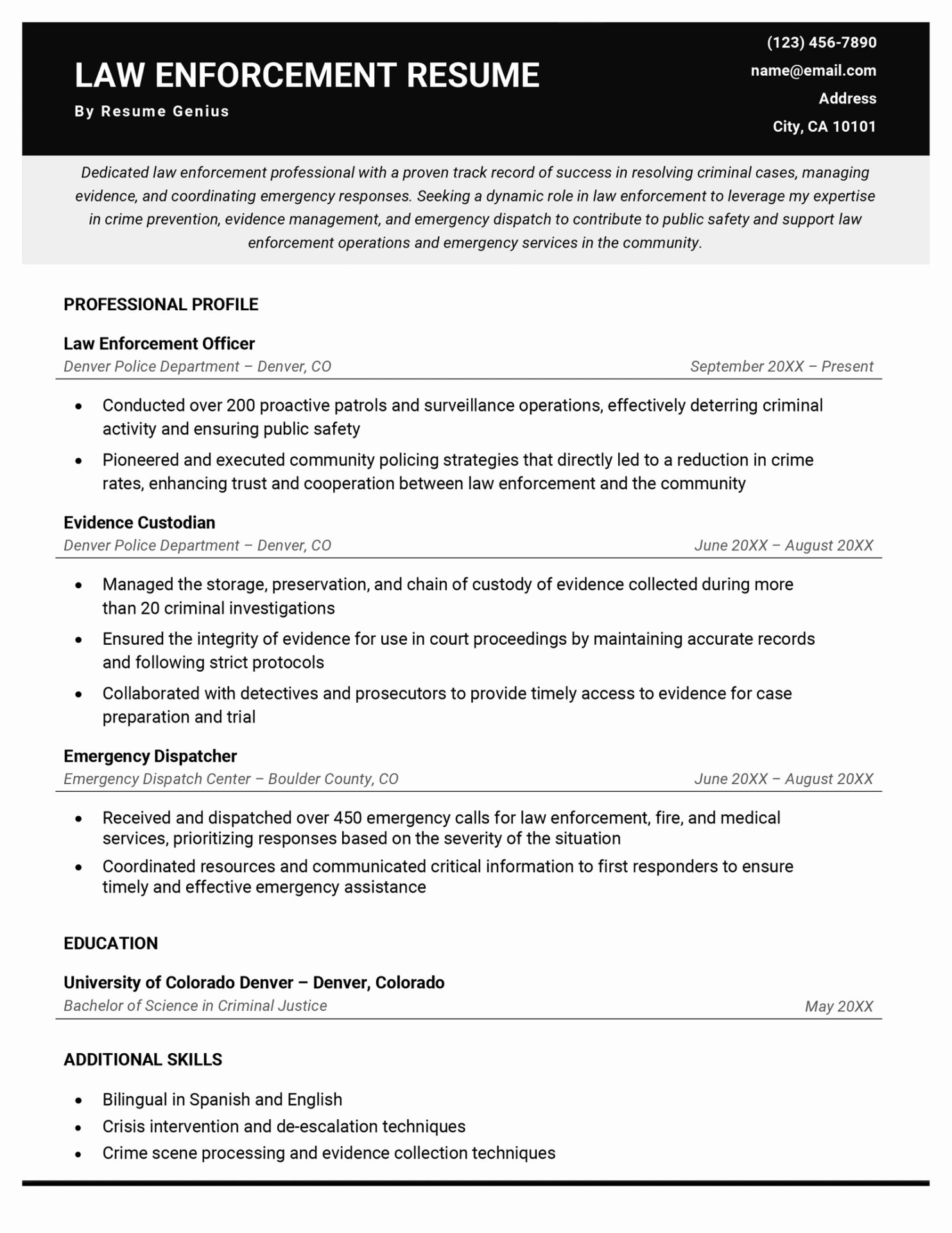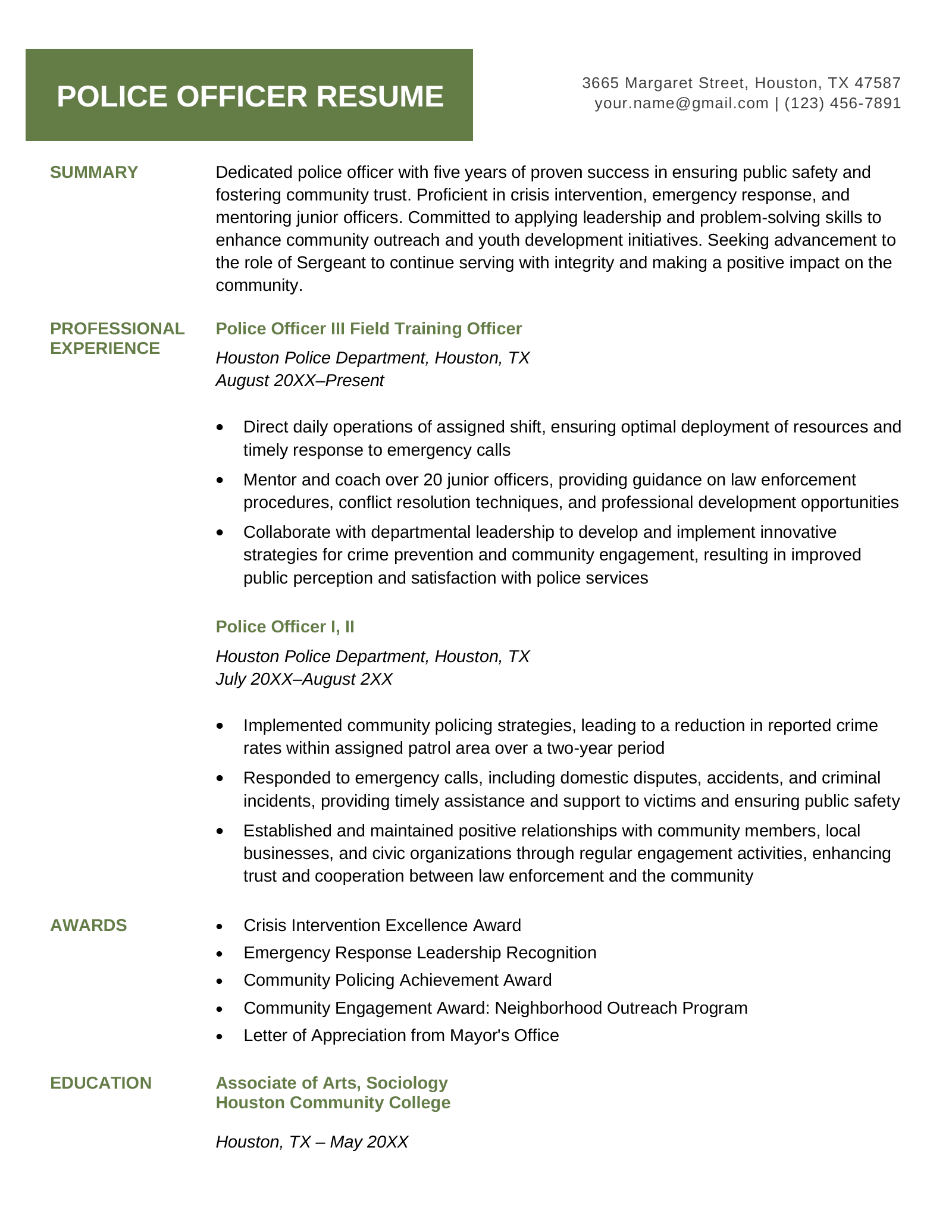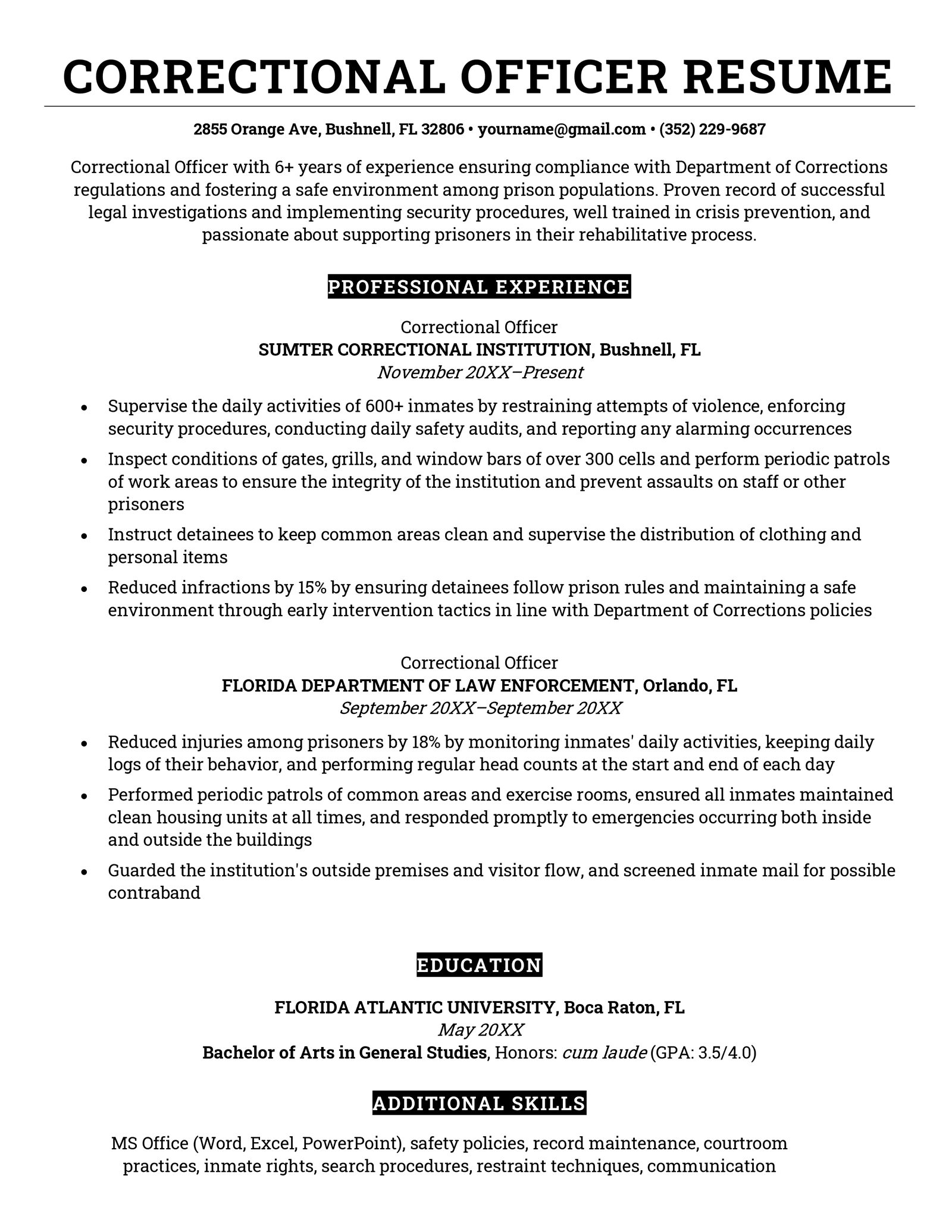FIRST AND LAST NAME
RESUME SUMMARY
Dedicated law enforcement professional with a proven track record of success in resolving criminal cases, managing evidence, and coordinating emergency responses. Seeking a dynamic role in law enforcement to leverage my expertise in crime prevention, evidence management, and emergency dispatch to contribute to public safety and support law enforcement operations and emergency services in the community.
PROFESSIONAL PROFILE
- Conducted over 200 proactive patrols and surveillance operations, effectively deterring criminal activity and ensuring public safety
- Pioneered and executed community policing strategies that directly led to a reduction in crime rates, enhancing trust and cooperation between law enforcement and the community
- Managed the storage, preservation, and chain of custody of evidence collected during more than 20 criminal investigations
- Ensured the integrity of evidence for use in court proceedings by maintaining accurate records and following strict protocols
- Collaborated with detectives and prosecutors to provide timely access to evidence for case preparation and trial
- Received and dispatched over 450 emergency calls for law enforcement, fire, and medical services, prioritizing responses based on the severity of the situation
- Coordinated resources and communicated critical information to first responders to ensure timely and effective emergency assistance
EDUCATION
ADDITIONAL SKILLS
- Bilingual in Spanish and English
- Crisis intervention and de-escalation techniques
- Crime scene processing and evidence collection techniques
















